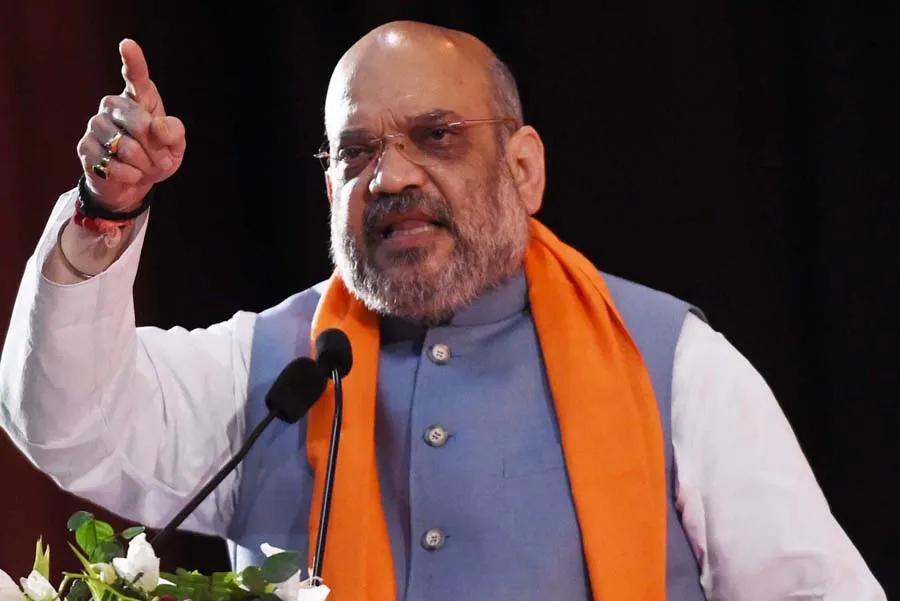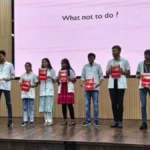Union Home Minister Amit Shah stated on Thursday that a strict approach should be adopted towards economic offenders, cyber criminals, those involved in terrorist activities, and all other fugitives to bring them within the scope of the Indian justice system.
Addressing a conference on ‘Extradition of Fugitives – Challenges and Strategies’ organized by the CBI here, Shah also urged all states to establish at least one international-level prison cell to counter the low-level prison arguments presented by fugitives in foreign courts.
He said that a zero-tolerance approach should be adopted not only against corruption, crime, and terrorism but also against criminals operating from outside India.
He stated that efforts should be made to bring all fugitives within the ambit of the law and establish a definite mechanism for this purpose.
He said, “Whether they are economic offenders, cyber criminals, involved in terrorist activities, or part of organized crime networks, a strict approach should be adopted against every fugitive to bring them before the Indian justice system. The time has come for this.”
The Home Minister said that the government under Prime Minister Narendra Modi has taken foolproof measures to ensure that no criminal escapes the reach of the law.
He said, “Under Prime Minister Modi’s leadership, a strong India is moving forward not only to secure its borders but also to strengthen the rule of law.”
Shah stated that no matter how fast crime and criminals move, the reach of justice must be even faster.
Referring to the new criminal laws coming into effect from July 2024, the Home Minister said that for the first time since independence, provisions have been made for trial in absentia.
He said, “If a person is declared a fugitive, the court can conduct the trial in their absence by appointing a lawyer for their defense. Once declared a fugitive, their status undergoes a significant change under international laws. We will be able to bring any fugitive, wherever they may be, before the law in the country.”
The Home Minister said that after Modi became Prime Minister, the government has adopted several systems, including the enactment of the Fugitive Economic Offenders Act in 2018, which has given the government the authority to confiscate fugitives’ properties.
He said, “Within approximately four years, we have recovered about two billion dollars, which is a very significant achievement. We need to accelerate this further.”
He stated that the Prevention of Money Laundering Act (PMLA) has also been strengthened further, and assets worth approximately 12 billion dollars have been seized between 2014 and 2023.
Shah said that since the CBI is the designated agency for extradition, every state should establish an entity with the agency’s help to create a mechanism for bringing back fugitives who have fled from the respective state.
He said that the CBI has established a special global operations center to catch fugitives internationally, which is coordinating in real-time with police forces worldwide.
He stated that between January and September 2025, 189 Red Notices have been issued, the highest since the CBI’s establishment.
Shah said, “This demonstrates that when a system is implemented, very good results are achieved.”
Regarding the online portal ‘Bharatpol’ established by the CBI for international police cooperation, the Home Minister said that it has achieved very good results since its formation in January 2025.
He said, “If state police forces also maximize its use, we will be even more successful in achieving our objectives.”






